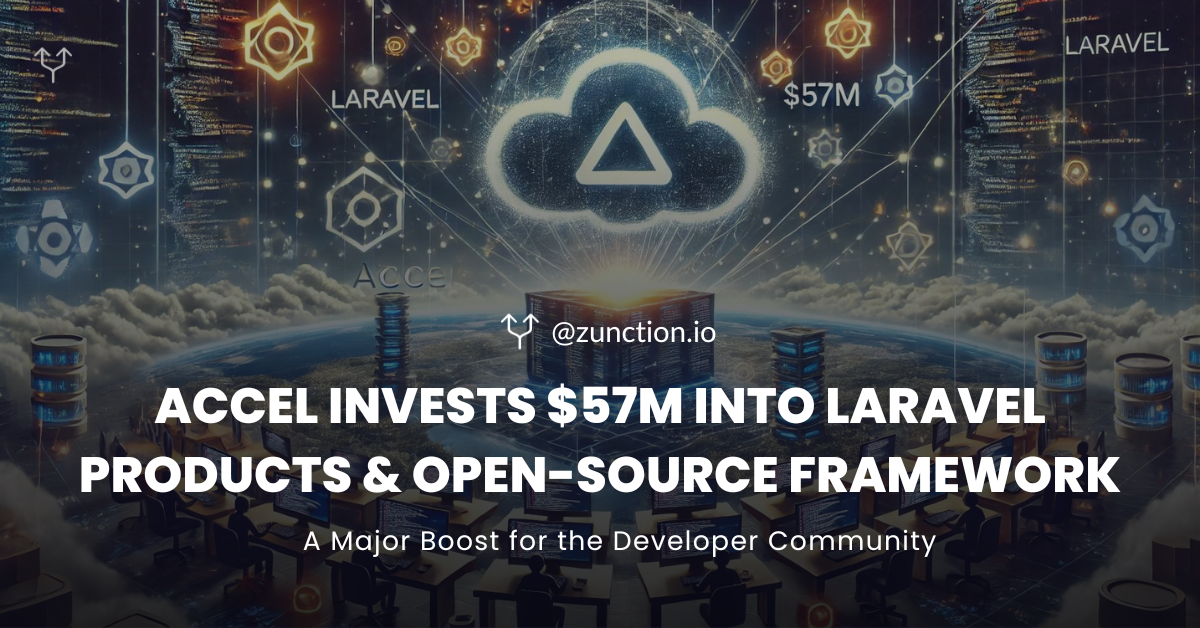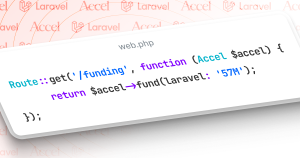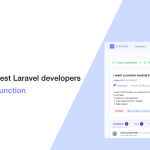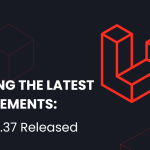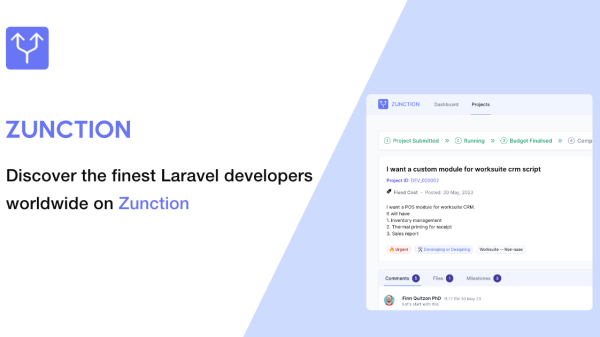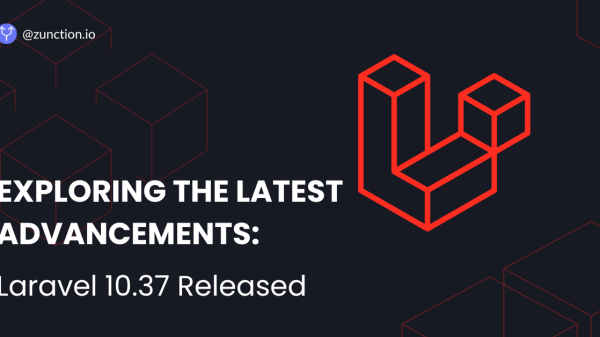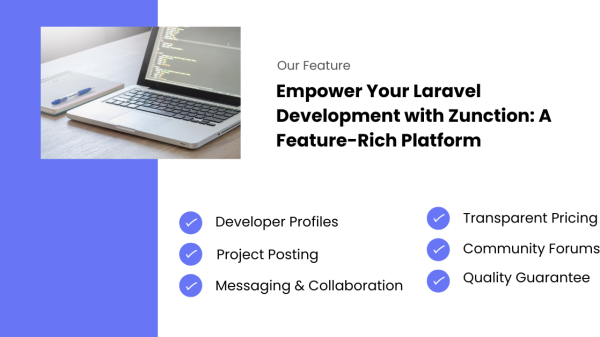In a significant move that has sent ripples through the tech industry, Accel, a renowned venture capital firm, has invested a whopping $57 million into Laravel products and the broader Laravel open-source framework ecosystem. This infusion of capital signals the growing prominence of Laravel and the increasing value placed on open-source frameworks that power countless web applications. This blog will dive deep into what this investment means for the Laravel ecosystem, its potential impact on developers and businesses, and why this is a landmark moment for open-source technology.
What is Laravel?
Before delving into the significance of Accel’s investment, it’s essential to understand what Laravel is. Laravel is a popular PHP web application framework known for its elegant syntax, ease of use, and developer-friendly features. Built by Taylor Otwell in 2011, it has become one of the most widely used frameworks for building modern web applications. Laravel simplifies tasks like routing, authentication, and database management, allowing developers to focus more on crafting exceptional user experiences.
Laravel’s large, passionate community has contributed significantly to its growth, resulting in a rich ecosystem of tools, libraries, and packages that developers can leverage to accelerate their projects. The framework’s versatility makes it suitable for building applications of all sizes, from small blogs to large-scale enterprise systems.
Accel’s Investment: A Milestone for Laravel and Open Source
Accel’s $57 million investment marks one of the most substantial financial commitments to an open-source framework, which highlights a few key factors:
- Validation of Open Source: Open-source projects have historically been passion-driven, with developers contributing code voluntarily. While these projects have powered some of the most critical infrastructure on the web, securing significant funding for open-source frameworks has often been a challenge. Accel’s investment in Laravel showcases a growing trend where investors see real business value in open-source ecosystems.
- Fueling Growth for Laravel-Based Products: Laravel has not only been a framework but has also inspired a host of products and services built around its ecosystem. Tools like Forge, Envoyer, and Vapor—products that help with server management, deployment, and scaling of Laravel apps—have become indispensable for Laravel developers. This new influx of funding will likely accelerate the development of more tools, products, and services that enhance the Laravel development experience.
- Supporting Innovation: With a considerable financial cushion, Laravel and its related products are now better positioned to experiment with innovative features, integrate modern technologies, and improve their existing offerings. This may include enhanced support for emerging technologies like AI and machine learning, more robust security measures, and streamlined workflows that reduce development time.
- Expanding the Laravel Community: Laravel has a thriving community, but with greater financial backing, it can potentially reach even more developers worldwide. This investment will allow for more educational initiatives, such as Laravel conferences, training programs, and documentation improvements, making it easier for developers to adopt Laravel in their projects. More contributors to the project can also mean quicker bug fixes, feature rollouts, and more regular updates.
The Rise of Laravel Cloud: Taking Development to the Next Level
One of the most exciting developments in the Laravel ecosystem has been Laravel Vapor, a serverless deployment platform that allows developers to deploy Laravel applications to the cloud effortlessly.
What is Laravel Vapor?
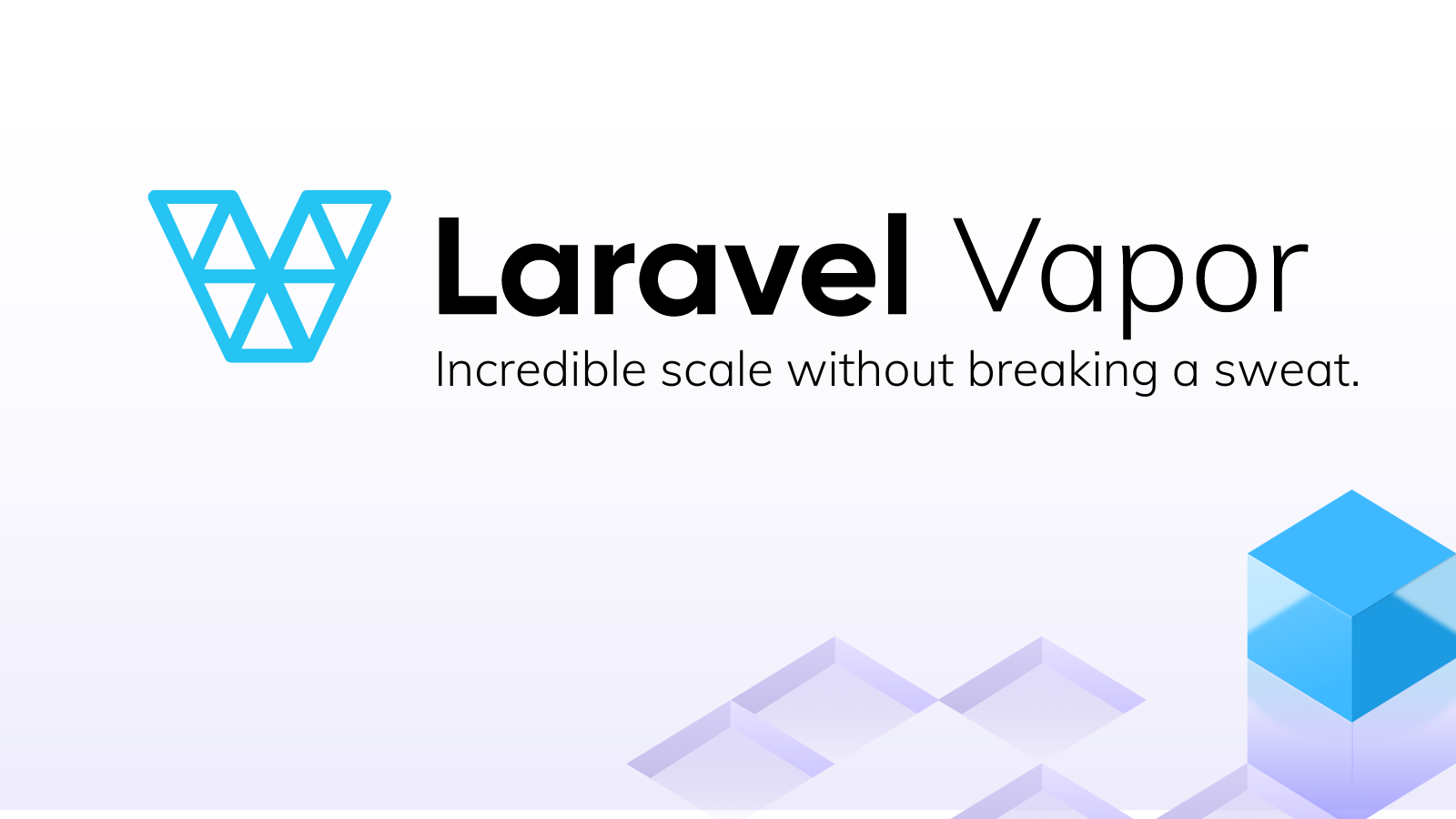
Laravel Vapor is a fully managed, serverless platform for Laravel applications built on AWS (Amazon Web Services). Launched by Laravel’s creator Taylor Otwell, Vapor abstracts the complexities of cloud infrastructure management, offering a seamless cloud experience that lets developers focus purely on building and scaling their applications.
Benefits of Laravel Vapor
- Serverless Deployment: Vapor eliminates the need for managing physical or virtual servers. This serverless model means that developers no longer have to worry about scaling infrastructure, optimizing server configurations, or handling downtime during traffic spikes. Applications are automatically scaled based on demand, making it perfect for handling unpredictable workloads.
- Reduced Operational Complexity: Vapor simplifies the entire cloud deployment process by handling things like backups, caching, and database management. It integrates directly with services such as AWS Lambda, DynamoDB, S3, and CloudFront, making it easy for developers to manage their cloud infrastructure.
- Cost Efficiency: By leveraging a serverless architecture, Laravel Vapor allows developers to pay only for the computing power they use, which can lead to substantial cost savings. This is especially beneficial for startups and businesses that experience fluctuating traffic or are still in the growth phase.
- Zero Downtime Deployments: Vapor offers built-in zero-downtime deployments, ensuring that your application remains available and responsive even during updates. This feature is critical for businesses that require constant uptime and smooth user experiences.
How Accel’s Investment Could Impact Laravel Vapor
With Accel’s $57 million funding, Laravel Vapor is poised for significant growth and refinement. The investment can drive the development of new features for Vapor, making it an even more robust and attractive option for businesses looking to move their Laravel applications to the cloud.
- Better Integrations: More third-party integrations and enhanced functionality with AWS and other cloud providers can be expected. This will allow Vapor users to take full advantage of cutting-edge cloud technologies.
- Global Expansion: Vapor could be expanded to support more regions and cloud infrastructures, giving businesses around the world access to a powerful and cost-effective serverless solution tailored specifically for Laravel applications.
- Improved Developer Experience: Accel’s investment can also enhance the user experience of Laravel Vapor, with more intuitive interfaces, better documentation, and increased support. This makes cloud deployment even more accessible to developers of all skill levels.
Why Laravel? The Framework’s Competitive Edge
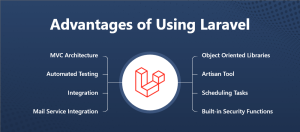
Laravel stands out from the crowded space of PHP frameworks due to several distinctive features:
- Elegant Syntax: One of Laravel’s main selling points is its clean, readable code, which enhances productivity and simplifies development.
- Robust Ecosystem: Laravel offers built-in solutions for common web development challenges, such as authentication, routing, and data handling, through a collection of services and packages.
- Strong Community Support: The framework’s large and active community is instrumental in its continuous evolution. Laravel’s extensive libraries and package management (via Composer) make it easier for developers to implement complex features without reinventing the wheel.
- Scalability and Flexibility: Laravel is flexible enough to support both small-scale projects and enterprise-grade applications, providing developers with the tools needed to build scalable web solutions.
Impact on Developers
Developers are likely the biggest beneficiaries of Accel’s $57 million investment in Laravel. Here’s how this capital injection can enhance their work:
- Improved Tools: Developers using Laravel products like Forge, Nova, and Vapor can expect new features, better integrations, and overall improved user experiences.
- Access to Resources: The investment will likely lead to a significant increase in resources such as better documentation, video tutorials, courses, and more structured community support. This will make it easier for new developers to learn Laravel and for experienced developers to refine their skills.
- Career Opportunities: With more companies adopting Laravel due to its growing ecosystem and the increased trust brought about by this investment, developers specializing in Laravel will be in higher demand. Companies will seek experienced Laravel developers to build and maintain web applications, leading to more career growth opportunities.
Impact on Businesses
For businesses, Accel’s investment provides a strong signal that Laravel is here to stay and grow:
- Reliability and Longevity: Businesses often hesitate to adopt open-source frameworks due to concerns about long-term support. However, Accel’s backing reassures companies that Laravel will continue to be actively developed and maintained for years to come.
- Faster Time-to-Market: With enhanced tools and services in the Laravel ecosystem, businesses can speed up their development cycles and bring products to market faster than before.
- Cost-Effective Development: Laravel’s ability to simplify development tasks and its extensive package ecosystem reduces development time and costs. Accel’s investment may spur more third-party integrations and developer tools that make Laravel even more cost-effective.
Looking Forward: The Future of Laravel
This massive funding from Accel is just the beginning of Laravel’s next chapter. We can expect several exciting developments soon:
- Deeper Enterprise Integration: Laravel has traditionally been favoured by small to mid-sized businesses, but with more resources at its disposal, the framework may now be better equipped to cater to larger, enterprise-level applications.
- Expansion into New Areas: With the rise of artificial intelligence, machine learning, and serverless computing, Laravel may explore these fields more aggressively, offering features that align with the next-generation needs of developers and businesses.
- Open-Source Empowerment: Beyond Laravel, Accel’s investment could set a precedent for further investment in other open-source projects, encouraging a more robust ecosystem of open-source tools and platforms across the tech industry.
Conclusion
Accel’s $57 million investment in Laravel products and the open-source framework ecosystem is a major milestone for both the Laravel community and open-source technology as a whole. It not only validates the power of open-source software but also provides Laravel with the resources to grow, innovate, and empower developers and businesses alike. For Laravel developers, this investment presents exciting opportunities to work with improved tools, enhanced resources, and a thriving ecosystem, while businesses can look forward to faster, more reliable, and cost-effective development.
As Laravel continues to evolve, this investment will undoubtedly shape its future, and we’re excited to see how it propels the framework to new heights. For developers, businesses, and tech enthusiasts alike, the future of Laravel looks incredibly bright. To get laravel projects sign up on Zunction now!
